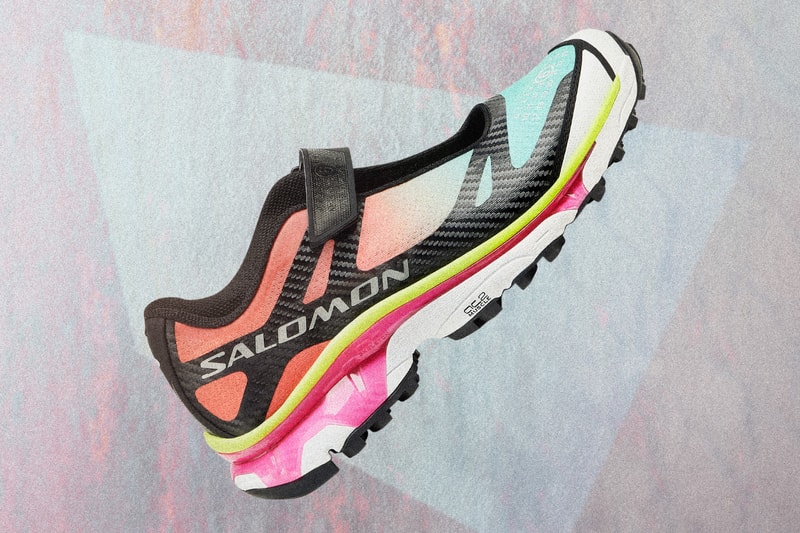13 Ways You Might Be Damaging Your Skin Barrier, According to Derms
Sarah Yang Thu, 30 Sep 2021 Who What WearHaving a skin barrier that's thriving is so important to skin health. Why? Because it's protection, plain and simple. "The skin barrier is essentially the top layer of our skin. It has two main functions—hold onto the good (nutrients, moisture, etc.) and protect from the harmful (pollution, etc.)," explains Kathleen S. Viscusi, MD, FAAD, FACMS, co-founder and partner at Dermatology and Surgery Specialists of North Atlanta (DESSNA)."
To put it into context about how important it is, board-certified dermatologist and docent medical advisor Farhaad Riyaz, MD, explains that the skin is our largest organ and has multiple functions, one of which is to protect from the environment (like UV rays, bacteria, toxins, viruses, and fungi). "In order to perform this function, it must be healthy. The skin barrier is essentially the outer layer of the skin, known as the stratum corneum," he says. "It includes skin cells (corneocytes), lipids, and a natural moisturizing factor. While the lipids are mostly ceramides and fatty acids, the natural moisturizing factor (NMF) is mainly comprised of amino acid, sugars, and minerals (namely calcium and magnesium)."

When it's damaged, you could experience dryness, irritation, inflammation, and it might even lead to other skin issues. And since the barrier is "broken," it doesn't offer the same level of protection against harmful things like pollution, UV rays, bacteria, and more. Yikes, right?
So how do you know if your skin barrier is damaged? Well, you'd probably have an idea because clear symptoms will show up. "Some common signs that our skin barrier has been compromised is inflammation, redness, sensitivity, itchiness, dryness, roughness, acne, as well as viral, bacterial or fungal infections. It can be one sign or several signs combined," says dermatological nurse and celebrity aesthetician Natalie Aguilar.

"While there are unavoidable daily contributions (i.e. pollution, etc.) There are ways you personally can be contributing to the damage of your skin barrier," Viscusi says. And a lot of that starts with cutting out some bad skincare routine habits and taking care of your skin. Here's what to avoid or be mindful of when it comes to your skin barrier.
1. Over-washing: "This can strip the barrier and leave the skin vulnerable and dry," says SkinSpirit lead aesthetician Karen Fernandez. And you'll also want to choose face washes and cleansers that are gentler on the skin, like this one below from CeraVe.

2. Over-exfoliating: Aguilar says this is the most common way to damage your skin barrier. "It can happen from using a face scrub too often, or using an exfoliant composed of harsh ingredients like apricot seeds, sharp salt, or high percentages of or using too many acids," she says. "Stripping away dead skin aggressively, and too often, will damage our skin's barrier. Over-exfoliating your skin can leave it bare with no protection or defense system." When you do exfoliate, try to use a product that is a bit gentler on the skin, like this one below.

3. Hot water: Cleansing with really hot water can play a role in damage, Riyaz says. Instead, try water which is best for the skin.
4. An unbalanced diet: Viscusi says this can compromise the skin barrier. And you should also get enough water, since a lack of adequate hydration is another factor, according to board-certified dermatologist Lian Mack, MD—she suggests drinking at least 64 ounces of water per day.

5. Harsh products: Riyaz says using harsh surfactants can cause harm. Also, products with pH levels that aren't compatible with your skin are also a factor.
6. Doubling up on active ingredients: This is another issue that Riyaz sees each week with Docent patients.
7. Lack of adequate moisturization: Mack recommends using hydrating moisturizers.

8. Facial waxing: "Facial waxing can damage your skin's barrier by creating inflammation," Aguilar says. "Waxing pulls hair and dead skin off, which creates an imbalance in the skin (which is why some people may break out in tiny pimples after a wax session)." If you do wax, make sure to give your skin some TLC afterwards.
9. Windburn and sunburns: "Elements can aggressively attack our skin when it's not protected and sealed with moisturizer and sunscreen," Aguilar explains. "You can start to feel your skin burn and dry up after it has been exposed to dry weather, harsh winds, and the sun. This can cause dryness and inflammation and can make one feel uncomfortable for days to come until the skin is repaired."
10. Lack of Sleep: Viscusi says this is another factor.

11. Smoking: Yet another reason to quit.
12. DIY Skincare: "When one starts making skincare in the kitchen it can easily go wrong," Aguilar says. "Not being familiar with the pH scale of skin, or ingredients in the kitchen, one can definitely alter our skin's natural pH without realizing it. Baking soda or lime juice can alter our pH and throw it out of sync creating inflammation, dryness, and even burns."
13. Genetic factors: A damaged skin barrier might also be due to genetics. Mack says you might be prone to certain skin conditions like eczema and psoriasis.

If your skin barrier is already damaged, there are steps to take to get it back on track. Here's what to do.
Simplify your skincare routine: This is a good place to start. "Overcleansing and over-exfoliating can strip your skin barrier of its natural goodness. Work with your board-certified dermatologist to figure out a skincare system that works for you," Viscusi says.
Aguilar recommends sticking to just four products: a cleanser, hydrating serum, moisturizer, and SPF.

Incorporate gentle and nourishing ingredients: "Hyaluronic acid, lipids, essential fatty acids, shea butter, vitamin E, and grapeseed oil are always great, simple ingredients to soothe and help repair the skin's barrier," Aguilar says.
Mack also recommends looking for occlusive ingredients to improve the functionality. "Ingredients like dimethicone and glycerin help to pull and lock moisture into the skin," she says. "Products that contain cholesterol and ceramides are also helpful. These ingredients are naturally found in the skin and contribute to the integrity of the skin barrier."
While your skin is recovering, you'll want to avoid AHAs, BHAs, retinol, antioxidants, or other active ingredients, Fernandez says. "If your skin is compromised from use of sensitizing products, stop using the products and let the skin calm down (this can take a few days or even weeks)," she explains. "It's very important that the creams used on compromised skin are free of any irritating additives (fragrances, etc/) and are even designed to be a barrier repair cream."

Prioritize thicker creams: "Using a thicker cream that will 'lock' in your own amino acids and hydration is just the ticket to repair," Fernandez says. "You need to make sure the cream has a larger molecular structure and will essentially sit in the skin's surface to act as a 'stand-in' barrier while your skin goes to work."
And if you're looking for some products to repair your skin barrier, take a look at some expert-recommended picks below.

















